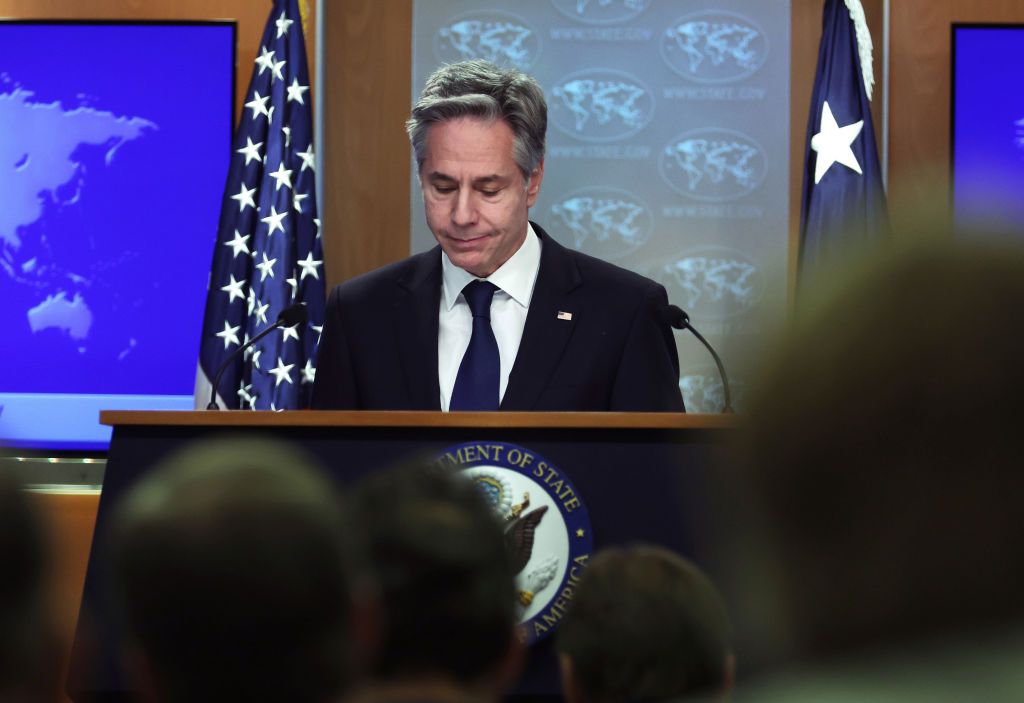U.S. Secretary of State Antony Blinken is set to warn Beijing about the opposition of the U.S. and its allies to China’s support for Russia’s war against Ukraine. The U.S. official cited by Bloomberg highlighted China’s close ties with Moscow during the war, which have included increased economic cooperation and the disruption of Western attempts to isolate Russia. Expanded trade with China has allowed Russia to maintain its economy and strengthen its military industry despite Western economic pressure. Blinken has previously cautioned China against providing Russia with lethal military aid and has urged Beijing to use its influence over Moscow to help end the conflict. He emphasized that China cannot maintain good relations with the West while simultaneously supporting Russia’s war efforts. Blinken is scheduled to deliver this warning in person during his upcoming trip to China on April 24-26 and will discuss the implications for European security if China continues to support Russia.
In response to Western criticism, China has defended its alliance with Russia as normal cooperation and denied providing either Ukraine or Russia with weapons during the full-scale war. Chinese Foreign Ministry spokesperson Mao Ning addressed the criticisms in a press conference in April, asserting that the partnership between Beijing and Moscow was typical. On the other hand, German Chancellor Olaf Scholz revealed that he had personally asked Chinese President Xi Jinping to exert pressure on Moscow to end the conflict, citing China’s influential role in Russia. Scholz acknowledged that China’s stance could have a significant impact on the resolution of the war in Ukraine. This request underscores the growing international pressure on key allies of Russia, such as China, to use their influence to help bring an end to the devastating conflict in Ukraine.
The U.S. Treasury Secretary Janet Yellen had previously warned of “significant consequences” if Chinese companies were found to be aiding Russia’s war efforts. This threat further underscores the gravity of the situation and the potential repercussions for those facilitating the conflict. The U.S. administration is clearly committed to holding accountable any actors that are enabling Russia’s aggression in Ukraine. By issuing warnings and threats of consequences, the U.S. aims to dissuade China and other countries from supporting Russia in its military campaign, highlighting the interconnected nature of global politics and the consequences of aligning with aggressor nations.
The statements and actions of U.S. officials, including Blinken and Yellen, reflect the broader efforts by the international community to bring an end to the war in Ukraine and hold accountable those responsible for the conflict. By targeting China’s support for Russia, the U.S. is sending a strong message to Beijing about the potential costs of aligning with an aggressor state. The warnings and diplomatic efforts aimed at China also underline the importance of global unity in opposing acts of aggression and promoting peace and stability. As the conflict continues to unfold, the pressure on key allies of Russia, such as China, to reconsider their support becomes increasingly significant in the quest for a peaceful resolution in Ukraine.
In conclusion, the warnings and diplomatic efforts directed at China by the U.S. underline the interconnected nature of global politics and the stakes involved in the conflict in Ukraine. By urging Beijing to reconsider its support for Russia and use its influence to help end the war, the U.S. is highlighting the importance of global cooperation in promoting peace and stability. The statements from U.S. officials also reinforce the commitment to holding accountable those who enable aggression and destabilization in the region. As the international community continues to mobilize against Russia’s actions in Ukraine, the role of key allies like China becomes crucial in bringing about a resolution to the conflict and restoring peace to the region.


